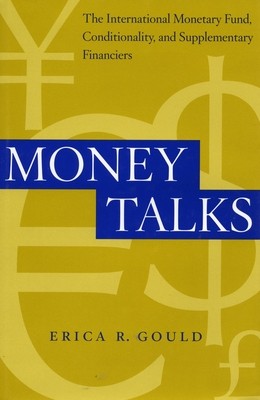
- We will send in 10–14 business days.
- Author: Erica R Gould
- Publisher: Stanford University Press
- ISBN-10: 0804752796
- ISBN-13: 9780804752794
- Format: 16.1 x 22.9 x 2.2 cm, hardcover
- Language: English
- SAVE -10% with code: EXTRA
Reviews
Description
Money Talks argues that, contrary to conventional explanations, the changes in the terms of International Monetary Fund (IMF) conditionality agreements are best explained by shifts in the sources for borrowing state financing. The Fund regularly relies on external financing to supplement its loans to countries facing payment imbalances. As a result, these supplementary financiers are able to exercise leverage over the Fund and the design of its conditionality programs.
The book's conclusions are supported by rich empirical material gathered directly from the IMF archives, including descriptive statistics and statistical analyses using an original data set, which is the first to code the terms of the 249 Fund conditionality agreements from 1952--when Fund conditionality began--to 1995, as well as case studies substantiated with archival and interview evidence.
EXTRA 10 % discount with code: EXTRA
The promotion ends in 17d.03:46:11
The discount code is valid when purchasing from 10 €. Discounts do not stack.
- Author: Erica R Gould
- Publisher: Stanford University Press
- ISBN-10: 0804752796
- ISBN-13: 9780804752794
- Format: 16.1 x 22.9 x 2.2 cm, hardcover
- Language: English English
Money Talks argues that, contrary to conventional explanations, the changes in the terms of International Monetary Fund (IMF) conditionality agreements are best explained by shifts in the sources for borrowing state financing. The Fund regularly relies on external financing to supplement its loans to countries facing payment imbalances. As a result, these supplementary financiers are able to exercise leverage over the Fund and the design of its conditionality programs.
The book's conclusions are supported by rich empirical material gathered directly from the IMF archives, including descriptive statistics and statistical analyses using an original data set, which is the first to code the terms of the 249 Fund conditionality agreements from 1952--when Fund conditionality began--to 1995, as well as case studies substantiated with archival and interview evidence.


Reviews